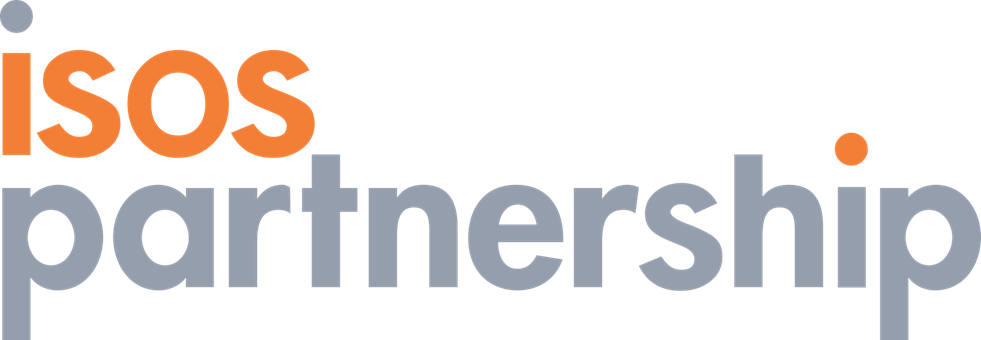Research and evaluation
Beyond Boundaries
‘The work has been massively helpful in understanding what our next steps could be, helping us to navigate the complexity of the early help system.’
— Anna Elliot, Supporting Families, Ealing
The brief
In 2022, we were commissioned by London Councils, the collective of local government in London representing the 32 boroughs and the city of London, to undertake research to explore the challenges and opportunities for successful integration of services for children under 5 and their families in London. They wanted the project to be a catalyst for improving the join-up of early years services across the city, and thus help to create an environment in which families with the youngest children experienced more streamlined support, and were more likely to access the right support at the right time. This issue is particularly acute in London, which has a high proportion of disadvantaged children and transient families, including many who are not confident in navigating systems of support.
Recognising that “early years integration” is both a broad concept with no consensus on a single optimal model and a means to an end rather than an end in itself, the following questions were key to understanding this issue in greater depth:
What does effective integration across early years systems and services look like for babies, young children and families in London?
To what extent is it in place already, and what further steps are needed to create joined-up support and ensure no child falls through the net?
What did we do?
We used a combination of research methods between February and May 2022 to explore the questions above. There were five elements to our overall research methodology:
Rapid review of literature, including a review of: national programme evaluations (e.g. Sure start); community impact initiatives in England and the US; and reports analysis from other specialists.
Expert interviews with eight professionals, including national experts from National Children’s Bureau, Natcen and Early Intervention Foundation, and regional children and young people leads from Association of Directors of Public Health.
Survey of London Local Authorities: this was completed by 26 of 32 DCSs or Heads of Early Years representing a response rate of 81%.
Fieldwork: a deep dive into five LAs, which included a document review, interviews with strategic leaders, multi-professional workshops and parent engagement. These deep dives were supplemented by fieldwork research in three further London LAs with innovative practice to share.
Triangulation of the above through a thematic analysis of the material collected, and testing of key messages with our project steering group and in small group discussions (with London DCSs, commissioners and Heads of Early Years).
Our fieldwork was a crucial aspect of the project and we devoted the majority of our time and resources to it. We focussed on five local authorities that had positive service and outcomes data. The sample was carefully selected to represent a balance of child deprivation levels and inner-and-outer-London boroughs, and to be representative of each of London’s five Integrated Care System regions. In each of these areas, we interviewed strategic leaders. We also held online multi-professional workshops, where we engaged a wide range of commissioned providers, operational leaders and managers (including from the voluntary sector). Crucially, we spoke to parents through a combination of online focus groups and engagement at local drop-in sessions. In the other three local authorities, our focus of engagement was on more specific innovative practice, and we spoke to senior service leaders and commissioners.
We collated the above findings and evidence into a final report for London Councils, which was published in July 2022 and includes analysis of integration in London as well as the key barriers and enablers for services. The document also provided recommendations at the local and neighbourhood level, London-wide and for national government. Prior to publication, we tested and iterated our recommendations with key stakeholders groups, including the London Councils Children and Young People Lead Members Group and the London Heads of Early Years Network.
As our intention was to create a practical document that could be helpful for all local authorities and their partners, we included 12 digestible ‘what works’ case studies in the report annex. Recognising that effective integration is an issue for all regions, our recommendations were also focussed at the individual council, London and national policy levels.
Alongside the report, we developed an easy to use self-evaluation tool that could help local authorities in their discussions with partners to progress integration across their local early years system and build a common agenda for change. We used the framework from our research as a starting point, and engaged local authority leaders and managers and their partners in health and the private and voluntary sector across London in a series of co-development workshops to test thinking and design a format that is practical and useful.
What difference did we make?
Our report has helped shape the conversation nationally about early years integration, receiving some media attention (see Evening Standard and CYPNow) and very positive feedback from a range of regional and national stakeholders. We were invited to present and discuss our findings with a range of stakeholders and audiences including civil servants and:
London Councils CYP Lead Members Group;
London Heads of Early Years Network;
Family Hubs Network;
The Nuffield Early Years Conference;
South East Sector led Improvement Programme; and
LGA (Local Government Association) national Early Years peer network.
The research was also referenced in Nuffield’s Foundation’s influential Bringing Up the Next generation report.
Critically at a local level, councils in London and beyond report using the research and tool to help them reflect on and review how effectively their early years systems are integrated and drive improvement. The LGA has also tested the tool in some of their local peer reviews.
We also continue to apply the learning from this project in Isos Partnership’s wider work. Recently, we used the tool and accompanying framework as a basis to review integration of early years support services for Ealing Council. We engaged strategic leaders and frontline workers across the public and voluntary sector in Ealing, exploring with them what is working and how services could work better together. Over 100 stakeholders were involved across interviews and online focus groups, which was followed by a multiprofessional co-design event at Ealing townhall. A final report including proposals about how Ealing can effectively progress integration of early support in the context of their Family Hubs work was presented to senior officers.
What did those involved say about the work?
‘Isos Partnership undertook a very comprehensive review of the early years systems in London. They engaged with a wide range of stakeholders, capturing views from different parts of the early years system as well as the experiences of parents. The report presented a clear snapshot of how integrated early year services were and set out obstacles and enablers for more joint work, with many case studies of good practice to help bring the findings to life. We valued their recognition of the need for discussions and recommendations that considered local, regional and national perspectives. The report was well received, and the tool is a very useful starting place for joint discussions exploring integration in local areas.’
— Samira Islam, London Councils
‘We really valued working with Isos Partnership in Ealing as part of our Family Hubs ‘Discovery and Consensus’ phase. They supported us to engage professionals across our early help system to explore how to improve integration of services that provide early support for children, young people and their families. Sessions were engaging and brought together a huge range of voices which Isos then distilled into key, tangible points for us to review, reflect and discuss. The work has been massively helpful in understanding what our next steps could be, helping us to navigate the complexity of the early help system.’
— Anna Elliot, Supporting Families, Ealing

